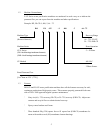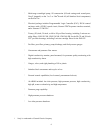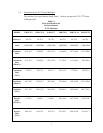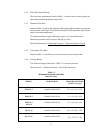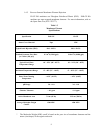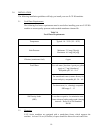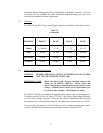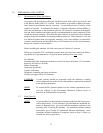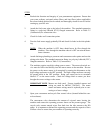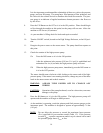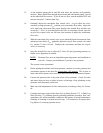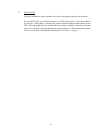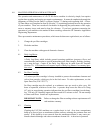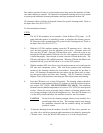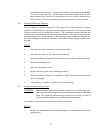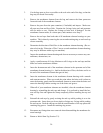
STEPS
1. Recheck the function and integrity of your pretreatment equipment. Ensure that
your water softener, activated carbon filters, and iron filters (where applicable)
have been leaked checked, back washed, and thoroughly rinsed for service before
starting up your RO unit.
2. Attach the feed water pipe to the inlet of the machine. The standard connection
fitting is a polyvinyl chloride (PVC) flanged connection. Refer to Table 2.5
(Connections) for connection sizes.
3. Check for leaks at all connection points.
4. Turn the feed water supply gradually ON and check for leaks in the inlet plumb-
ing.
NOTE
: When the machine is OFF, there should never be flow through the
machine. Flow through the machine when it is OFF can ruin the mem-
brane elements.
5. Attach discharge plumbing to permeate and concentrate outlet points and run the
tubing to the drain. The standard connection fitting is a polyvinyl chloride (PVC)
flanged connection. Refer to Table 2.5 (Connections).
6. The machine requires one high voltage power source. The motor electrical ser-
vice must be field wired directly into the motor starter on the machine. Be sure
the power to the motor starter is de-energized by turning the disconnect on the
high voltage enclosure to the OFF position. The high voltage enclosure can only
be opened while in the OFF position. Bring your motor service to terminals
labeled “T” on the motor starter. Check the voltage label to ensure you have
brought the correct voltage to the starter.
IMPOR
TANT NOTE Motors are dual rated. Factory installed starters and
wiring are rated for 400VAC (380VAC). The motor
starter and motor wiring must be replaced prior to con-
verting to a lower voltage.
7. Open your concentrate and recycle flow control valves (located behind the con-
trol enclosure).
The concentrate valve determines the amount of rejected water leaving the
machine and creates the operating pressure shown on the pressure gauge. The
recycle valve returns unused reject flow back into the inlet stream to the RO
pump. It is important to balance the operating pressure and the respective flows
of these valves to ensure that your machine is operating correctly.
13



